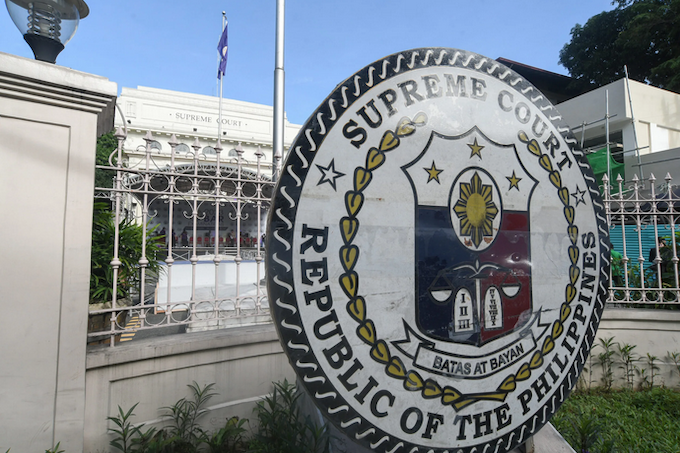
By Jairo Bolledo in Manila
The Philippine Supreme Court has granted temporary protection to an environmental activist abducted in Pangasinan earlier this year.
In its resolution dated September 9 — but only made public this week — the court granted Francisco “Eco” Dangla III’s petition for temporary protection, and prohibited the respondents, including high-ranking soldiers and police officers, to be near the activist’s location.
“Furthermore, you, respondents, and all persons and entities acting and operating under your directions, instructions, and orders are PROHIBITED from entering within a radius of one kilometer of the person, places of residence, work, and present locations of petitioner and his immediate family,” the resolution read.
- READ MORE: ‘We will cut out your tongue’: Filipino activists recount kidnap ordeal
- ‘Bruised but alive’: Missing environmental activists in Pangasinan found safe
- Other Filipino activist reports
The respondents are:
- Philippine Army chief Lieutenant General Roy Galido
- Philippine National Police (PNP) chief Police General Rommel Francisco Marbil
- Brigadier General Gulliver Señires (in his capacity as 702nd Brigade commanding general Brigadier)
- Ilocos Region police chief Police Brigadier General Lou Evangelista
- Police Colonel Jeff Fanged (in his capacity as Pangasinan police chief)
Aside from giving Dangla temporary protection, the court also granted his petition for writs of amparo and habeas data. A writ of amparo is a legal remedy, which is usually a protection order in the form of a restraining order.
The writ of habeas data compels the government to destroy information that could cause harm.
These extraordinary writs are usually invoked by activists and progressives in the Philippines as they face intimidation from the government and its forces.
Dangla’s abduction
Dangla and another activist, Joxelle Tiong, were abducted in Pangasinan last March 24.
According to witnesses, they saw two men who were forced to board a vehicle in Barangay Polo, San Carlos City.
The two activists, who who had been red-tagged for their advocacies, were serving as convenors of the Pangasinan People’s Strike for the Environment.
They “vocally defended the people and ecosystems of Pangasinan against the harms of coal-fired power plants, nuclear power plants, incinerator plants, and offshore mining in Lingayen Gulf,” at the time of their abduction.
Three days later, several groups announced that Dangla and Tiong were found safe, but that the two had gone through a “harrowing ordeal.”

The reality
The protection given to Dangla is only temporary as the Court of Appeals still needs to conduct hearings on the petition. In other words, the Supreme Court only granted the writ, but the power to whether grant or deny Dangla the privilege of the writs of amparo and habeas data lies with the Court of Appeals.
There have been instances where the appellate court granted activists the privilege of writ of amparo, like in the case of labour activists Loi Magbanua and Ador Juat, where the court issued permanent protection orders for them and their immediate families.
Unfortunately, this was not the case for other activists, such as young environmentalists Jhed Tamano and Jonila Castro.
The two were first reported missing by activist groups. Security forces later said they were “safe and sound” and that they had allegedly “voluntarily surrendered” to the military.
However, Tamano and Castro went off-script during a press conference organised by the anti-insurgency task force and revealed that they were actually abducted.
In February, the High Court granted the two temporary protection and their writs of amparo and habeas data petitions. However, the appellate court in August denied the protection order for Tamano and Castro.
Associate Justice Emily San Gaspar-Gito fully dissented in the decision and said: “It would be uncharacteristic for the courts, especially this court, to simply fold their arms and ignore the palpable threats to petitioners’ life, liberty and security and just wait for the irreversible to happen to them.”
Republished with permission from Rappler.













































